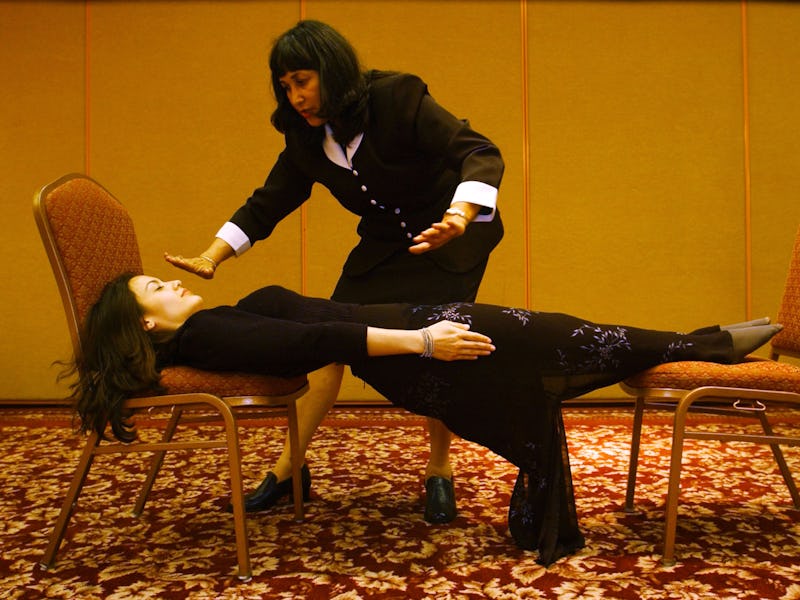Hypnosis brings up images of hokey magicians in capes, swinging pocket watches, and people clucking like chickens. But in real life, hypnotism doesn’t turn people into brainwashed Hydra agents, and science is showing that it’s not only a tool to help ease off nicotine addiction and the pain of childbirth or surgery, but also is a powerful therapeutic tool that might help overcome pain, anxiety, and stress.
A team of psychologists published their research on the differences in brain scans of individuals who were “highly hypnotizable” and people who are not so easily hypnotized. This is one of the first studies that actually looks at the brain to see what happens during the state of hypnosis.
Participants entered a fMRI machine and were hypnotized as their brains were scanned. The team, led by David Spiegel, a psychiatrist at Stanford, looked at the active regions of the brain during hypnosis. Spiegel and his team found that hypnosis weirdly activates the region of the brain responsible for reflection while simultaneously disconnecting the part meant for body awareness. In other words, therapeutic hypnosis allows a person to access memories and self-examine with a therapist without feeling self-conscious about doing it. In fact, people who were hypnotized had more activity in regions of the brain associated with learning, planning, emotion, and memory – but only when they were hypnotized.
Should you be booking a hypnotism appointment right about now? Not quite yet — this was a study done with only 50-odd participants, and more research needs to be done as to how personal reflection combined with hypnosis might help with anxiety issues. But Spiegel’s team is on it.
